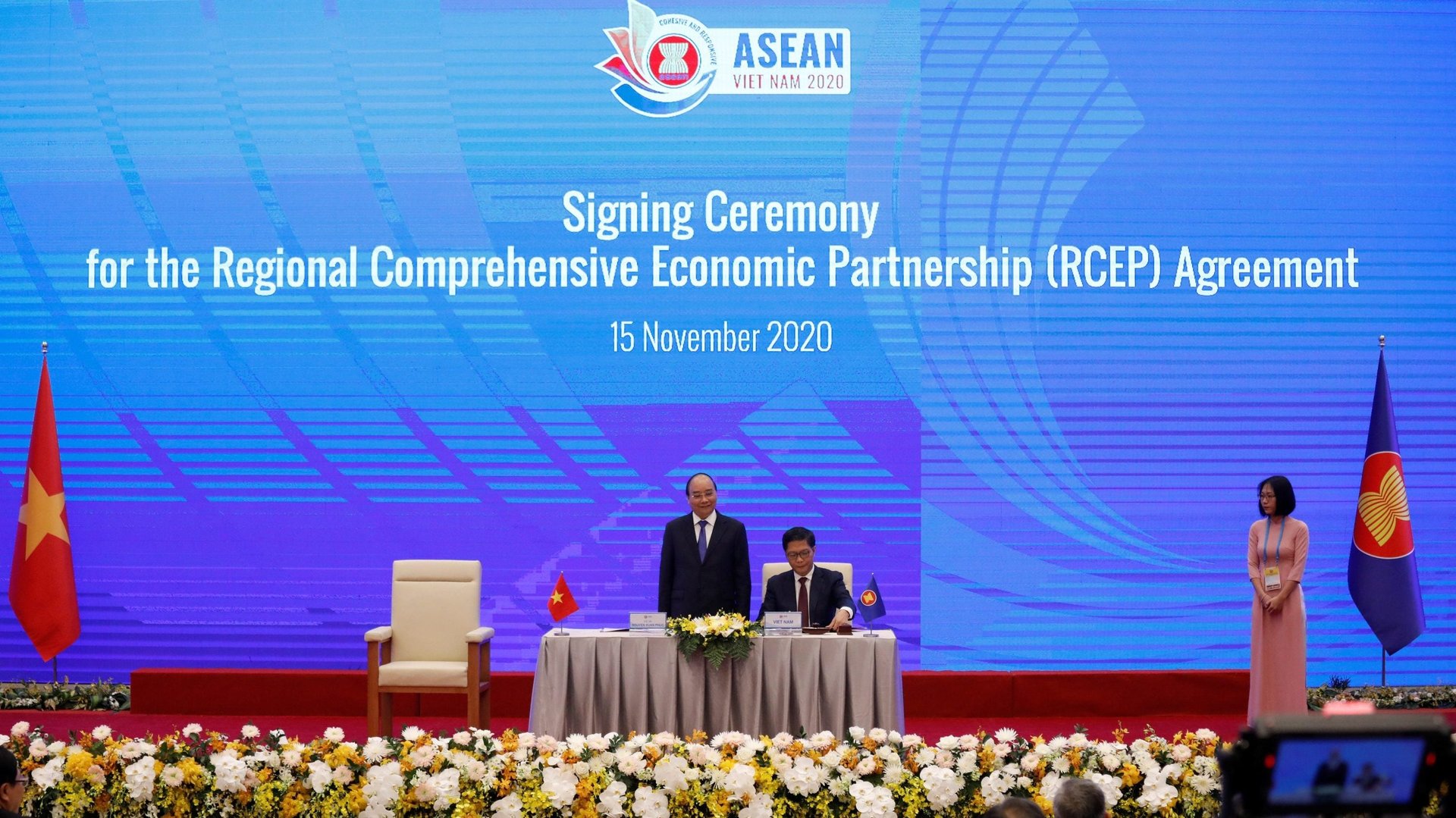While the US did America First, other countries came together
After World War II, the US and UK backed the precursor framework to the World Trade Organization, hoping to move the world firmly away from the ill effects of 1920s and 1930s protectionism, and believing that the geopolitical gains would be as great as the economic ones.


After World War II, the US and UK backed the precursor framework to the World Trade Organization, hoping to move the world firmly away from the ill effects of 1920s and 1930s protectionism, and believing that the geopolitical gains would be as great as the economic ones.
Today, these two architects of the modern world trade order have taken a sharp turn away from far-reaching global agreements, and gone back to the more cautious approach of negotiating one nation at a time.
In 2017, newly inaugurated US president Donald Trump made good on his campaign promise to drop out of the Trans-Pacific Partnership (TPP), negotiations for which involved dozens of countries. Britain has spent much of the past four years unwinding its participation in the European trade bloc, and is now edging closer to a no-deal Brexit. (It is, however, finalizing trade deals with Japan and Canada.)
Meanwhile, two separate massive trade blocs are forming in different parts of the world.
Last week, Nigeria ratified the African Continental Free Trade Area (AfCFTA): The pan-Africa trade bloc will come into effect in January, with the aim of creating a single market for goods and services. And in Asia, 15 countries including China just formed the Regional Comprehensive Economic Partnership (RCEP), which could dramatically streamline trade in the region when ratified. As a bloc, RCEP covers more than 2 billion people and about $26 trillion in GDP.
It’s unclear if US president-elect Joe Biden will try to join the successor to the TPP, which the remaining countries put into effect in December 2018 and which proponents saw as potentially a key avenue for US influence in Asia. It’s also not clear if Biden would withdraw American opposition to the globalist Nigerian candidate backed by many countries for next chief of the World Trade Organization. Nor is it clear if warnings from British business will finally lead to the conclusion of a Brexit deal with the EU.
But if the countries of AfCFTA and RCEP were able to come together despite the risks, it is because they believe there’s more to gain than there is to lose. In the US and Britain, what’s clear is that many have come to believe the opposite.